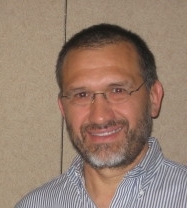mPower
See the following -
Health Data Should Belong to Patients, Topol Argues
The digital revolution’s merging of medicine with high tech has unleashed massive amounts of data about the most intimate details of our life — what we ate, how far we walked, how fast our heart beat. As a result, what constitutes health data is no longer so easily defined. Neither is how the information is used. With rise of machine learning, those questions are becoming increasingly urgent, especially with the move of high tech companies into the clinical sphere, according to health data transparency advocate Dr. Eric Topol...
- Login to post comments
How Wearable Electronics Will Change Clinical Trials
 Advances in sensor technology and microelectronics have opened new opportunities in the health and life sciences industries. Wearable sensors allow for continuous bio-monitoring without any manual intervention, thus reducing provider-patient interaction and costs while contributing improvements in the quality of the data...The broad adoption of biosensors by consumers, combined with advances in Nano and Cloud technologies are expected to radically change the way research is conducted by the Life Science industry, improving patient recruiting and monitoring, while lowering development and therapy cost.
Advances in sensor technology and microelectronics have opened new opportunities in the health and life sciences industries. Wearable sensors allow for continuous bio-monitoring without any manual intervention, thus reducing provider-patient interaction and costs while contributing improvements in the quality of the data...The broad adoption of biosensors by consumers, combined with advances in Nano and Cloud technologies are expected to radically change the way research is conducted by the Life Science industry, improving patient recruiting and monitoring, while lowering development and therapy cost.
- Login to post comments
Obama Administration Announces Key Actions to Accelerate Precision Medicine Initiative
 A year ago the President announced the launch of the Precision Medicine Initiative to accelerate a new era of medicine that delivers the right treatment at the right time to the right person, taking into account individuals’ health history, genes, environments, and lifestyles. Precision medicine is already transforming the way diseases like cancer and mental health conditions are treated. Molecular testing for cancer patients lets physicians and patients select treatments that improve chances of survival and reduce adverse effects...
A year ago the President announced the launch of the Precision Medicine Initiative to accelerate a new era of medicine that delivers the right treatment at the right time to the right person, taking into account individuals’ health history, genes, environments, and lifestyles. Precision medicine is already transforming the way diseases like cancer and mental health conditions are treated. Molecular testing for cancer patients lets physicians and patients select treatments that improve chances of survival and reduce adverse effects...
- Login to post comments
Sage Bionetworks Advocates for Open Systems in Health Research
 Sage Bionetworks, a nonprofit biomedical research organization, continues its work to redefine the way in which health data is gathered, shared and used through the use of open systems, incentives and norms. In a Nature commentary published today, a set of governing principles for digital health data analysis that are designed to maximize the contribution of large-scale digital data to advancing medical care are described. This commentary was co-authored by John Wilbanks, Chief Commons Officer at Sage Bionetworks and Eric Topol, MD, Director of the Scripps Translational Science Institute, and Chief Academic Officer of Scripps Health. The two work together on the NIH-funded Precision Medicine Initiative that was announced earlier this month.
Sage Bionetworks, a nonprofit biomedical research organization, continues its work to redefine the way in which health data is gathered, shared and used through the use of open systems, incentives and norms. In a Nature commentary published today, a set of governing principles for digital health data analysis that are designed to maximize the contribution of large-scale digital data to advancing medical care are described. This commentary was co-authored by John Wilbanks, Chief Commons Officer at Sage Bionetworks and Eric Topol, MD, Director of the Scripps Translational Science Institute, and Chief Academic Officer of Scripps Health. The two work together on the NIH-funded Precision Medicine Initiative that was announced earlier this month.
- Login to post comments
Sage Bionetworks Releases First-of-its-Kind Data from Parkinson’s iPhone Study
 Sage Bionetworks, a nonprofit biomedical research organization, today released an unparalleled dataset that captures the everyday experiences of more than 9,500 people to help speed scientific progress toward treatments for people with Parkinson’s disease. The dataset, which consists of millions of data points collected on a nearly-continuous basis through the iPhone app mPower, will provide researchers with unprecedented insight into the daily changes in symptoms and effects of medication for people with Parkinson’s.
Sage Bionetworks, a nonprofit biomedical research organization, today released an unparalleled dataset that captures the everyday experiences of more than 9,500 people to help speed scientific progress toward treatments for people with Parkinson’s disease. The dataset, which consists of millions of data points collected on a nearly-continuous basis through the iPhone app mPower, will provide researchers with unprecedented insight into the daily changes in symptoms and effects of medication for people with Parkinson’s.
- Login to post comments
Sage Bionetworks to Share Results of Mobile Health Research Study at Upcoming Precision Medicine Conference
 In the midst of several colliding perspectives on personal data sharing from both patients and researchers, it is challenging to comprehend how clinical study designs should be conducted to benefit both stakeholders. Sage Bionetworks recently began sharing data from over 9,000 participants of mPower, a mobile health research study for Parkinson's Disease. As one of the first observational assessments of human health to achieve this scale, its success is attributed to the unique study design which emphasizes transparency and trust between participants and researchers...
In the midst of several colliding perspectives on personal data sharing from both patients and researchers, it is challenging to comprehend how clinical study designs should be conducted to benefit both stakeholders. Sage Bionetworks recently began sharing data from over 9,000 participants of mPower, a mobile health research study for Parkinson's Disease. As one of the first observational assessments of human health to achieve this scale, its success is attributed to the unique study design which emphasizes transparency and trust between participants and researchers...
- Login to post comments
Yes, You Can Reconcile The Wide Sharing Of Personal Medical Research Data With Greater Participant Control
 Although the benefits of sharing big datasets are well-known, so are the privacy issues that can arise as a result. The tension between a desire to share information widely and the need to respect the wishes of those to whom it refers is probably most acute in the medical world. Although the hope is that aggregating health data on a large scale can provide new insights into diseases and their treatments, doing so makes issues of consent even trickier to deal with. A new study of Parkinson's disease from Sage Bionetworks, which describes itself as a "non-profit biomedical research organization," takes a particularly interesting approach. Unusually, it used an iPhone app to gather data directly from the participants...
Although the benefits of sharing big datasets are well-known, so are the privacy issues that can arise as a result. The tension between a desire to share information widely and the need to respect the wishes of those to whom it refers is probably most acute in the medical world. Although the hope is that aggregating health data on a large scale can provide new insights into diseases and their treatments, doing so makes issues of consent even trickier to deal with. A new study of Parkinson's disease from Sage Bionetworks, which describes itself as a "non-profit biomedical research organization," takes a particularly interesting approach. Unusually, it used an iPhone app to gather data directly from the participants...
- Login to post comments